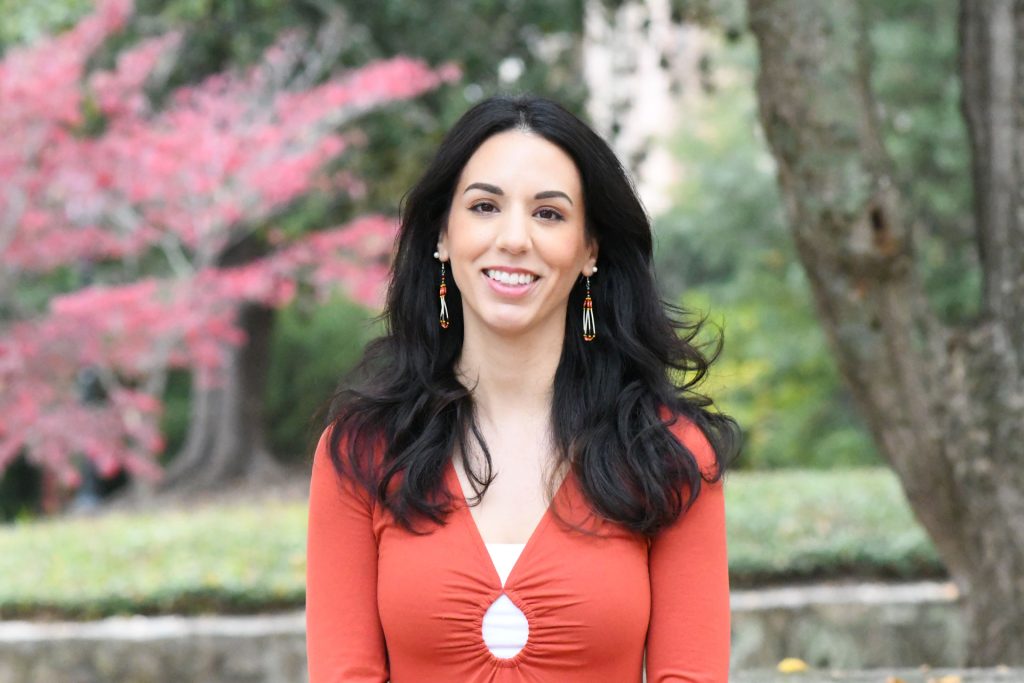Graduate student Marissa Carmi is a citizen of the Oneida Nation of Wisconsin — and as an American Indian — she’s brought her life experiences and perspective to serve graduate and professional students at the University of North Carolina at Chapel Hill.

Before pursuing graduate school, Carmi worked for the Administration for Native Americans (ANA), part of the United States Department of Health and Human Services, where she saw empowerment in action among American Indians around the country. Her doctoral work in the department of American studies is inspired, in part, by her time with ANA and focuses on Oneida intellectual history and efforts to build a sustainable Oneida future.
“I was so fascinated by all of the different things that Native organizations were doing with their federal awards,” Carmi said. “From rebuilding traditional food systems, to immersing kids in Native languages, communities are designing programs to secure their sovereignty and their futures,” she said.
She’s brought that sense of advocacy and belonging to Carolina as co-president of the First Nations Graduate Circle, which supports and advocates for American Indian graduate and professional students on campus. Their work includes regular social hours, advocacy events, and building a sense of community. Its membership — around half a dozen people — is also open to non-Native people who want to advocate on campus and beyond.
“It’s a community, and we support and take care of one another,” Carmi said. “We refer to each other as family; I think that’s probably the most important thing.”
Carmi, whose doctoral program is housed in the College of Arts and Sciences, is part of a working group on global indigeneity and American Indian studies, which is charting the future of the Native studies curriculum.
“I feel really privileged to be tapped to be a part of it,” she said. “It’s a hands-on experience in learning how curriculums are built and what it means to be a program.”
For graduate students who come to the University with a variety of life experiences, communities like the graduate circle foster connection.
“It’s vital,” Carmi said. “At a big university, there’s sometimes a feeling of invisibility. As much as it’s important to connect with people unlike you, there’s a certain comfort to know that people understand your experiences.”
As a current graduate teaching assistant in a Native studies course, Carmi hopes that students realize the humanity of Native people and come away feeling challenged to explore misconceptions they might have held.
“The diversity of ideas supports our campus community,” she said. “I think that’s the benefit of a liberal arts education — it ultimately makes us better people.”
By Elizabeth Poindexter, The Graduate School
